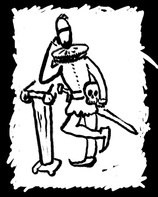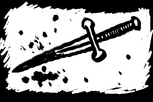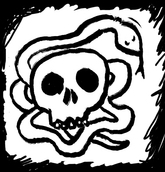10.21.11
Memoir: J.S. Breukelaar
Illustrations by CM Evans
Hamlet, I Wish I Knew You
|
About the Author:

J.S. Breukelaar’s fiction and poetry has appeared in numerous online and print magazines, notably, G(ob)bet Magazine, New Dead Families, Opium Magazine, Retort Magazine, Dogzplot and others. Her collection, Ink, came out in 2011 (Les Editions du Zaparogue) and her novels, Blue Moves, and American Monster, are being sold in NYC. To find out more about her, go to www.thelivingsuitcase.com.
|



